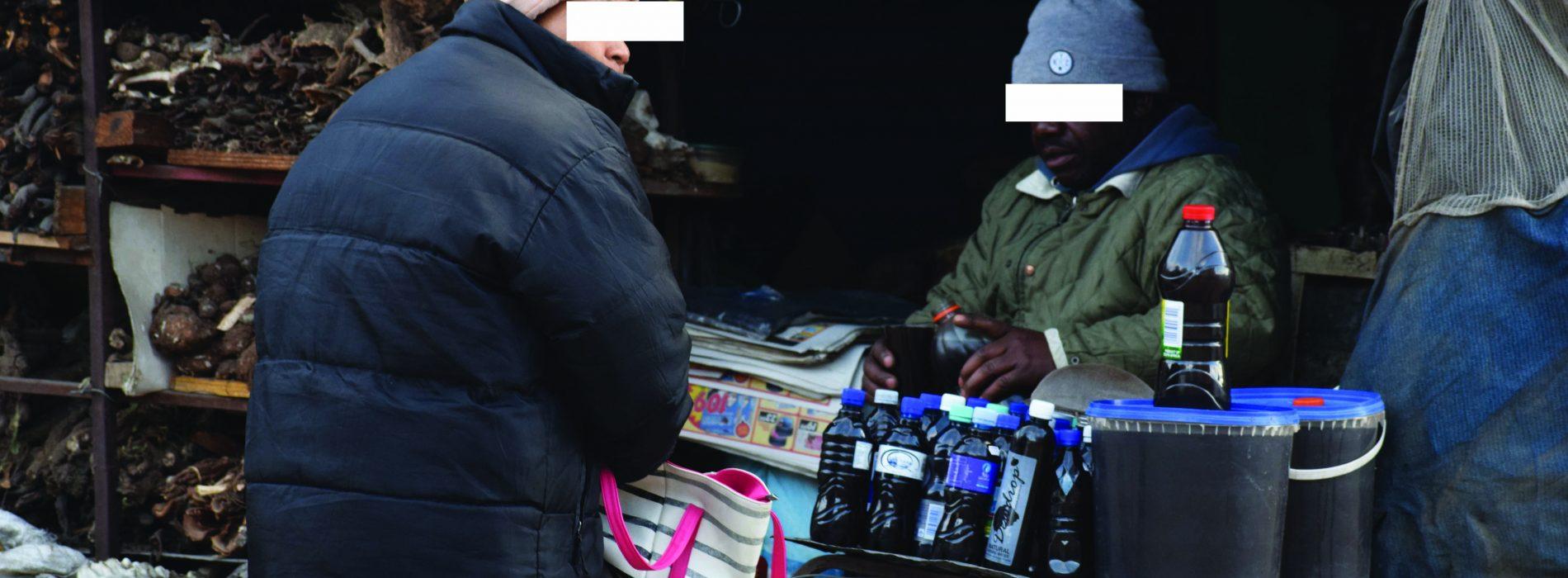Africa-Press – Lesotho. Move over Viagra and in comes lebetlela, a potent traditional herb Basotho swear packs a punch in the bedroom. People who spoke to thepost this week described it as the best medicine to keep the bedroom fires burning.
But it also has its critics who dismiss it as an expensive ruse sold to desperate men who are eager to please their women in bed. While the debate rages, people in Maseru and other towns are quietly buying the concoction which they say enhances sexual performance.
And so welcome to the world of lebetlela, a concoction that attracts both praise and ridicule. “You will only hear her ululation that I have satisfied her, I am the man from Ha-Mootsinyana,” a man said boastfully in a conversation with friends at the Maseru bus stop recently.
Lebetlela is a concoction of indigenous wild herbs and is vigorously marketed especially on Moafrika FM, a feisty church-run radio station in Lesotho, as the answer to erectile dysfunction in some men in Lesotho.
Some men “swore by God” that the concoction had changed their lives, which is sweet music to sellers of the herbs keen to attract more customers. Take Tšeliso Ntšo-Ntšo.
The man in his mid-fifties from Mafeteng town told thepost this week that he was struggling to perform in bed due to the stress of losing a job in 2019 and could no longer perform in bed.
“I bought this medicine and I want to tell you that from the day I drank it I am going all the way, the whole 90 minutes of the match,” Ntšo-Ntšo said, using a popular football metaphor.
Polao Tlali, also from Mafeteng, was equally ecstatic. “My age-mate (thak’a ka, a euphemism for his male organ) was so flaccid that I could not do anything.
No amount of rubbing would make it hard until I bought the medicine,” Tlali said. “I am now a proud man who is able to run the race and reach the finish line. I am now a marathon man,” he said. Even some women are speaking about the concoctions in glowing terms.
A Maseru woman who chose anonymity said the situation in her home had become so hopeless that her husband had decided to sleep in a separate room because of the embarrassment of failing to perform.
“The car would just stop when it was about to enter the garage. I could see that this was eating him up mentally. He was continuously sad,” she said.
She decided to take matters into her own hands and bought a concoction called Mōkōkō-oa-Lihlaba for her man. She said she has no regrets. “He has been back in my bed since that time,” she said.
Morena Thelle, a hawker who sells the moriana concoction in the streets of Maseru, said many customers are so happy with the product that they refer their friends to him.
“Some of them live in big houses in Maseru West, Thetsane West and Masowe,” he said, referring to Lesotho’s upmarket suburbs.
“It is not a secret, although some want to hide the fact that they use well-known herbs,” said Thelle.
“I am not a sangoma.
I am just someone who learnt from those who have knowledge of these herbs and I have no reason to withhold this vital information from other people,” he said.
Thelle said his concoctions include phate-ea-ngaka (helichrysum coepititium), mohatollo (roessler), papetloana (platypterum) and moli (hypoxis hemerocallidea).
Other sellers of libido-enhancing medicines focus more on women. Social media platforms are abuzz with screenshots of testimonies of people who use yoni steaming herbs and pearls.
Yoni Pearls are usually advertised as a vaginal or uterus detox or cleanser that contains multiple herbs wrapped in small mesh cloth “gems” or “pearls”.
Women use them by inserting them in their private parts, sometimes for over 24 hours. People who sell them claim that they treat a variety of health problems as well as tighten the female organ.
Likhahloa Sekobi, a consumer, said she started using the combo of yoni steaming herbs and pearls and steaming bowl well before they were popular. “I saw their benefits on an Instagram post and some public figures even commented openly with their testimonies.
That’s when I decided to research about them on trustworthy websites and then placed my order,” Sekobi said. She said she wasn’t sure about tightening the female organ but could attest to a vastly improved sex drive.
She said she used the combo for three months but has since stopped. “I stopped after I heard that they increase infertility,” she said. Another consumer, Kelebone Mpaka, said yoni steam was recommended to her by a friend when she told her that she had an infection.
“Ever since I used it, I feel so fresh,” claimed Mpaka. Moliehi Tšoeu, a trader, said she started selling the items in February after noting a high demand for the items.
Medical authorities are not too convinced however, and warn people of the dangers of resorting to concoctions whose medicinal properties are not scientifically proven.
In a 2021 article, Dr Mary Jane Minkin, a Clinical Professor of Obstetrics and Gynecology at Yale University in the United States said yoni pearls are risky as there is no science to back up all the claims made about it.
“If you look up ‘yoni pearls’ in the index of medical publications, PubMed, there is nothing listed, so we have basically zero medical information,” Minkin said.
“But it’s safe to say they are risky.
Putting anything that contains chemicals, fragrance or herbs in a vagina can totally mess (it) and it may lead to itching, burning, cramping, unusual vaginal discharge, yeast infections, bacterial vaginosis and vaginal dryness,” she said.
She revealed that the United States Food and Drug Administration (FDA), the agency that determines that the “benefits of the product outweigh the known risks for the intended use”, cracked down on yoni pearls manufacturers for misleading medical claims.
Manufacturers must submit a premarket approval (PMA) application and the results of clinical testing in order for the medical product to get the FDA approval. She dismissed claims that it increases fertility. “In fact yoni pearls can lower chances of conception. They are not safe. ”
“The vagina has no real toxins and one’s body has its own system to remove toxins and does just fine and people shouldn’t let some ‘wellness’ brand or influencer tell otherwise.
There is no need to clean the uterus or vagina for fertility as the uterus cleanses itself monthly,” she said. Local gynaecologist, Dr Teboho Masia, said the safety of the herbs is not documented so they could be harmful by altering the normal vaginal flora.
“The vagina does not need any cleansing. The local lactobaccilus provides natural protection against infections. I would not recommend the herbs,” Dr Masia said.
For More News And Analysis About Lesotho Follow Africa-Press






